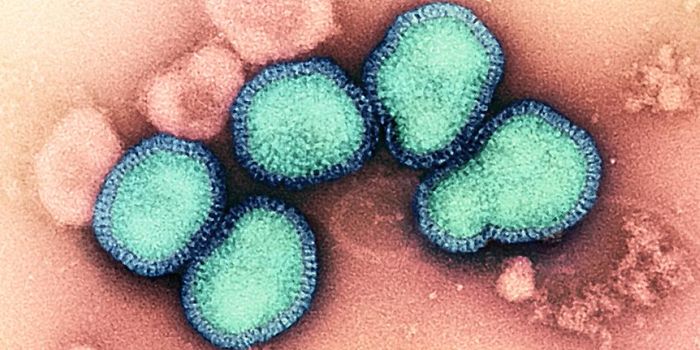A Human Gut Microbe Can Help Maintain Healthy Cholesterol Levels
The world is full of microorganisms, and our bodies are one of the many places they have colonized. Some species that live in the human gut have been studied and analyzed for years, like Escherichia coli. Others are more mysterious, and we are starting to learn more about this microbial 'dark matter.'
"We know it's there," said graduate candidate Doug Kenny, at Harvard's Graduate School of Arts and Sciences, "because of how it affects things around it." Kenny is the co-first author of a study reported in Cell Host and Microbe that has revealed more about how a microbial species affects cholesterol levels in people. This microbe may one day be useful as a therapeutic that can maintain healthy cholesterol levels.
"The metabolism of cholesterol by these microbes may play an important role in reducing both intestinal and blood serum cholesterol concentrations, directly impacting human health," said co-senior study author Emily Balskus, professor of chemistry and chemical biology at Harvard University.
High cholesterol levels are thought to be a major risk factor for heart disease. There are medications that can help control cholesterol levels, but they are not helpful for every patient, and they have the potential to cause side effects.
"We're not looking for the silver bullet to solve cardiovascular disease," Kenny said, "but there's this other organ, the microbiome, another system at play that could be regulating cholesterol levels that we haven't thought about yet."
Researchers have known that some bacteria like to consume cholesterol; these microbes have been found in hog sewage lagoons. When cholesterol is metabolized in the gut, one chemical that's generated is coprostanol.
"Because the hog sewage lagoon microbe also formed coprostanol," said Balskus, "we decided to identify the genes responsible for this activity, hoping we might find similar genes in the human gut."
Computational scientist and co-first study author Damian Plichta queried databases of genomic information from human gut microbes to look for genes that were linked to stool samples with high coprostanol levels.
"From this massive amount of correlations," he said, "we zoomed in on a few potentially interesting genes that we could then follow up on."
Balskus and Kenny also sequenced the genome of the hog microbe that consumes cholesterol. They found genes that were similar to what was found in the datasets. Kenny inserted microbial genes that were potentially responsible for breaking cholesterol down into coprostanol and identified a gene called Intestinal Steroid Metabolism A (IsmA) as the likely candidate.
"We could now correlate the presence or absence of potential bacteria that have these enzymes with blood cholesterol levels collected from the same individuals," said co-senior study author Ramnik Xavier, co-director of the Broad's Infectious Disease and Microbiome Program.
After analyzing data from the microbiomes of people in several countries, the researchers found that stool cholesterol levels were reduced by 55 to 75 percent in people that carried the IsmA bacterial gene in their gut microbiome. "Those who have this enzyme activity basically have lower cholesterol," Xavier explained.
This work may help create therapeutics that are aimed at the microbiome, or that use bacterial species, to maintain healthy blood cholesterol levels.
Sources: AAAS/Eurekalert! via Harvard University, Cell Host and Microbe









